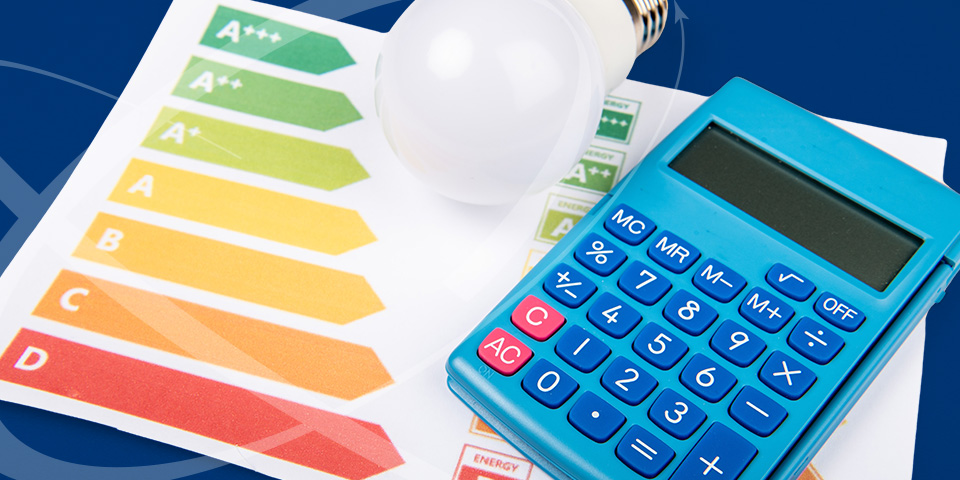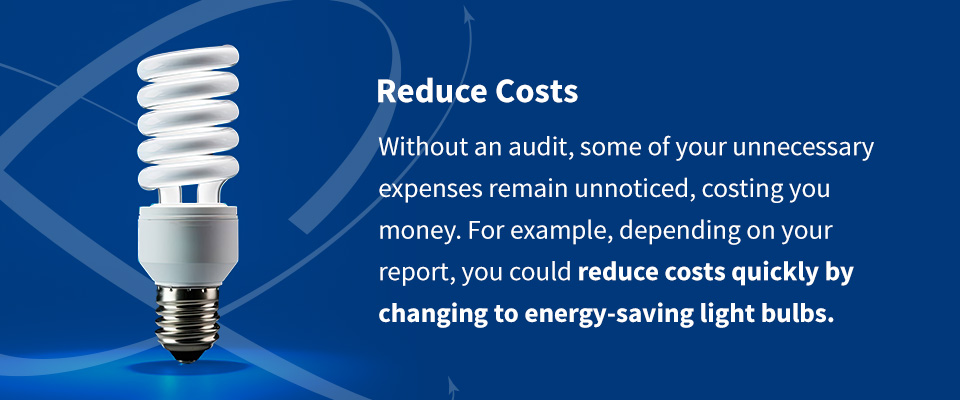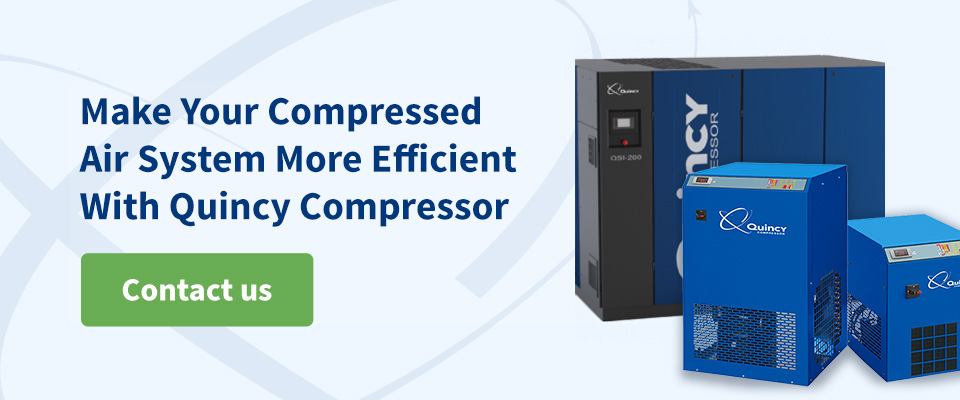
On average, 30% of the energy used in commercial buildings is wasted. As businesses in every industry look to a green future, assessing energy wastage and implementing practical solutions is critical. Compressed air systems power many companies, but they also represent potential energy losses, which you can address with the right tools and professional input.
The benefits of an energy audit go beyond cost savings. The auditing process can reveal opportunities to streamline workflow, minimize repairs and maintain regulatory compliance. If you’ve ever considered an energy audit, now is the time to learn more about the process and how it can help your organization achieve its strategic goals.
What Is an Energy Audit?
An energy audit is a detailed evaluation of a commercial enterprise’s energy usage. It aims to identify activities and areas where energy is wasted and recommend strategies to reduce that waste, saving money and meeting sustainability goals. The energy audit of an organization involves a professional auditor inspecting your heating, cooling and operational processes. Your audit report provides crucial information on your Energy Star rating. It forms a baseline for implementing a renewable energy system.
In addition to identifying waste, a professional inspector can advise you on opportunities to purchase more energy-efficient equipment, saving you money over time. Performing regular energy audits allows you to stay abreast of rising energy costs and reduce your carbon footprint.
The American Society of Heating, Refrigerating and Air Conditioning Engineers (ASHRAE) classifies energy audits into three categories. In reality, there is a fourth option. The four types of energy audits include:
- Level 0: These walkthrough audits are quick and inexpensive, providing a short list of potential improvement opportunities. They are ideal for business owners with multiple properties to identify buildings that require a more detailed analysis.
- Level 1: A Level 1 audit is also a walkthrough to ascertain how energy flows and performs in your building. It aims to provide a bird’s eye view of areas where you have inefficient energy usage and a report of some inexpensive changes you can make to resolve them.
- Level 2: Level 2 energy audits come with the same detailed evaluation as a Level 1 audit with expanded data collection and analysis broken down by end-use.
- Level 3: If a Level 2 audit reveals potential large-scale projects, you might elect for a Level 3 audit to collect more field data on your energy consumption. From there, your auditor will recommend more significant investments and changes you can make to reduce overall energy use.
10 Reasons Why Companies Should Do an Energy Audit
In today’s fast-paced business world, it’s natural to wonder why conducting an energy audit matters. Doing so has significant benefits for your business. Conducting an energy audit can:
1. Lower Energy Consumption
Most organizations consume more energy than they need. An energy audit can help you identify waste and move toward a greener operating model. An accurate assessment of areas where you can reduce energy consumption benefits your business in the short term and continues to make a long-term difference.
2. Reduce Costs
Once your energy audit has identified opportunities to reduce energy usage, you can start enjoying the financial advantages. Without an audit, some of your unnecessary expenses remain unnoticed, costing you money. For example, depending on your report, you could reduce costs quickly by changing to energy-saving light bulbs. You can also consider more extensive system upgrades, resulting in considerable cost savings.
3. Improve Carbon Emissions
Our energy consumption has environmental costs as well as financial. Coal still powers many electricity plants and excess energy use depletes fossil fuels. Even an action as simple as switching to LED lights can reduce your carbon footprint.
Every small step toward reducing your organization’s carbon footprint makes a difference, especially in line with the government’s goals for net-zero emissions by 2050.
4. Identify Maintenance Issues
During your energy audit, your inspector might identify additional issues like compressed air leaks while completing the onsite inspection. While these problems waste energy, they can also cause repair and maintenance issues. Getting on top of these maintenance challenges can reduce costs and expensive downtime.
5. Maintain Compliance
Compliance with energy-saving industry regulations is a legal obligation for many businesses. Energy audits are crucial in helping your organization meet energy efficiency regulations.
6. Prolong Equipment Life
Many energy-saving recommendations can also reduce equipment wear and tear, such as lighting control and variable frequency drives. Reducing energy consumption can also limit unnecessary equipment use, prolonging equipment life and limiting repairs.
7. Improve Building Comfort
Making your building more comfortable is a fortuitous byproduct of an energy audit. Typical energy-saving recommendations include insulation, weatherizing and HVAC upgrades. The primary objective may be to cut costs, but taking steps to insulate and manage your building’s temperature creates a more comfortable and productive working environment.
8. Elevate Your Business Reputation
Almost 90% of consumers believe organizations should do more to reduce their carbon impact. Reducing your energy consumption enhances your reputation among consumers who would instead work with businesses that take a proactive stance on green initiatives. It also opens up your business to a new consumer base and makes you more competitive in the current market.
9. Inform Decision-Making
Understanding how your business uses energy can inform your strategic decision-making. An energy audit provides you with accurate data to support executive decisions.
10. Support Equipment Investments
Integrating large energy-saving equipment into your operations often requires a significant upfront investment. The data from an energy audit can support this investment and provide valuable information on your expected return on investment. It can also help you prioritize energy-saving initiatives based on your budget and core requirements.
How to Conduct an Energy Audit in Your Industry
The primary energy audit requirements include identifying the most efficient and cost-effective energy conservation methods and opportunities. Suppose you want a clearer picture of how your building and equipment use energy. In that case, you can conduct an internal assessment or contact a registered energy auditor to operate a commercial energy audit. These auditors are available through your power company and local utility. Many private businesses also offer comprehensive auditing services.
If you want to audit specific equipment like compressed air systems, contacting an expert in the field is the best way to identify potential energy savings.
Make Your Compressed Air System More Efficient With Quincy Compressor
Up to 50% of all generated compressed air is wasted, which drives up your overall energy costs. Conduct a compressed air audit at your facility with Quincy Compressor and get access to our innovative Efficiency Quotient (EQ) process. With this tool and our expert input, you can accurately evaluate your equipment’s efficiency and performance in line with industry-approved best practices.
Feel free to contact us to learn more about compressor energy management or browse our energy-efficient air compressors online.



